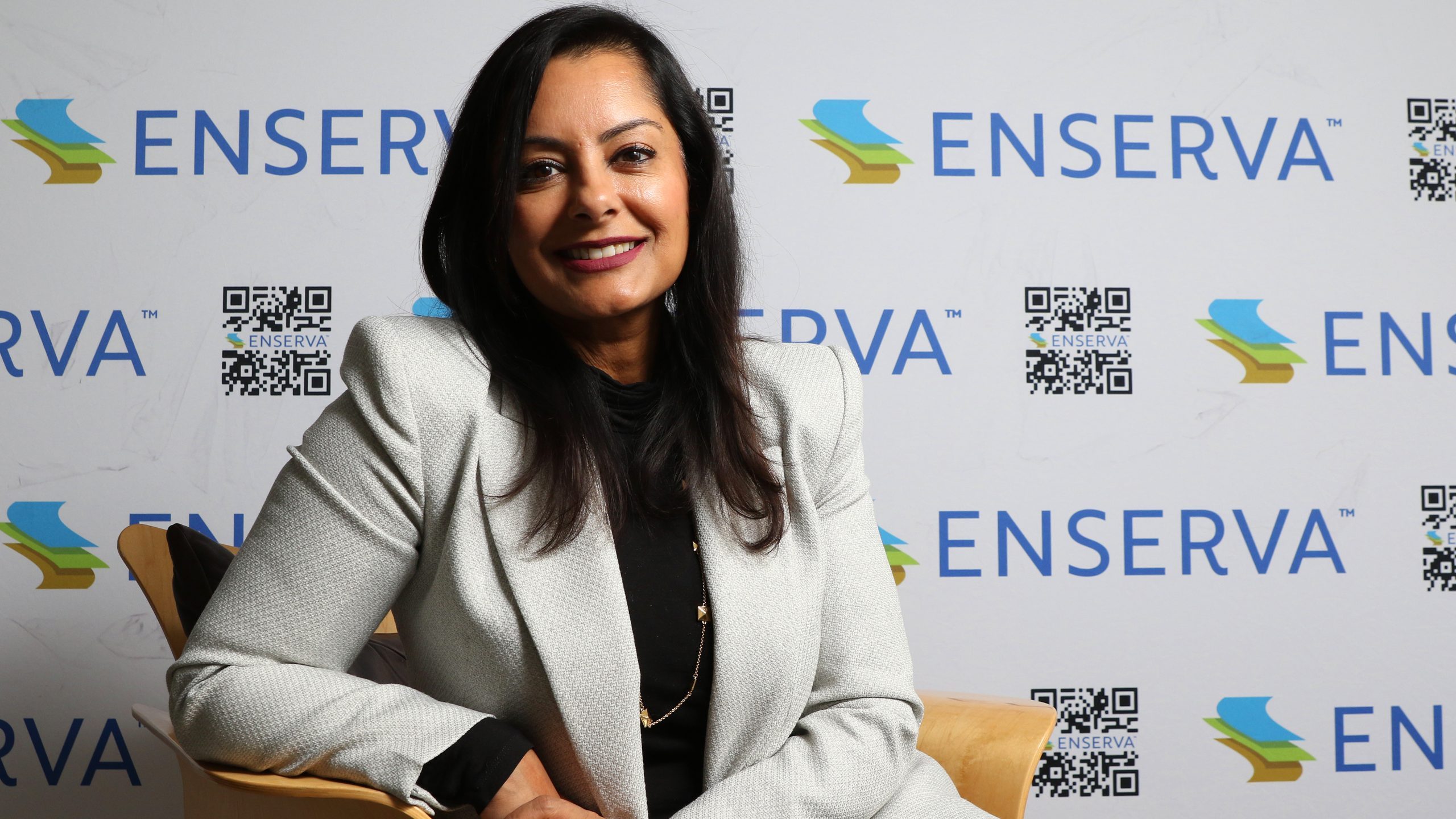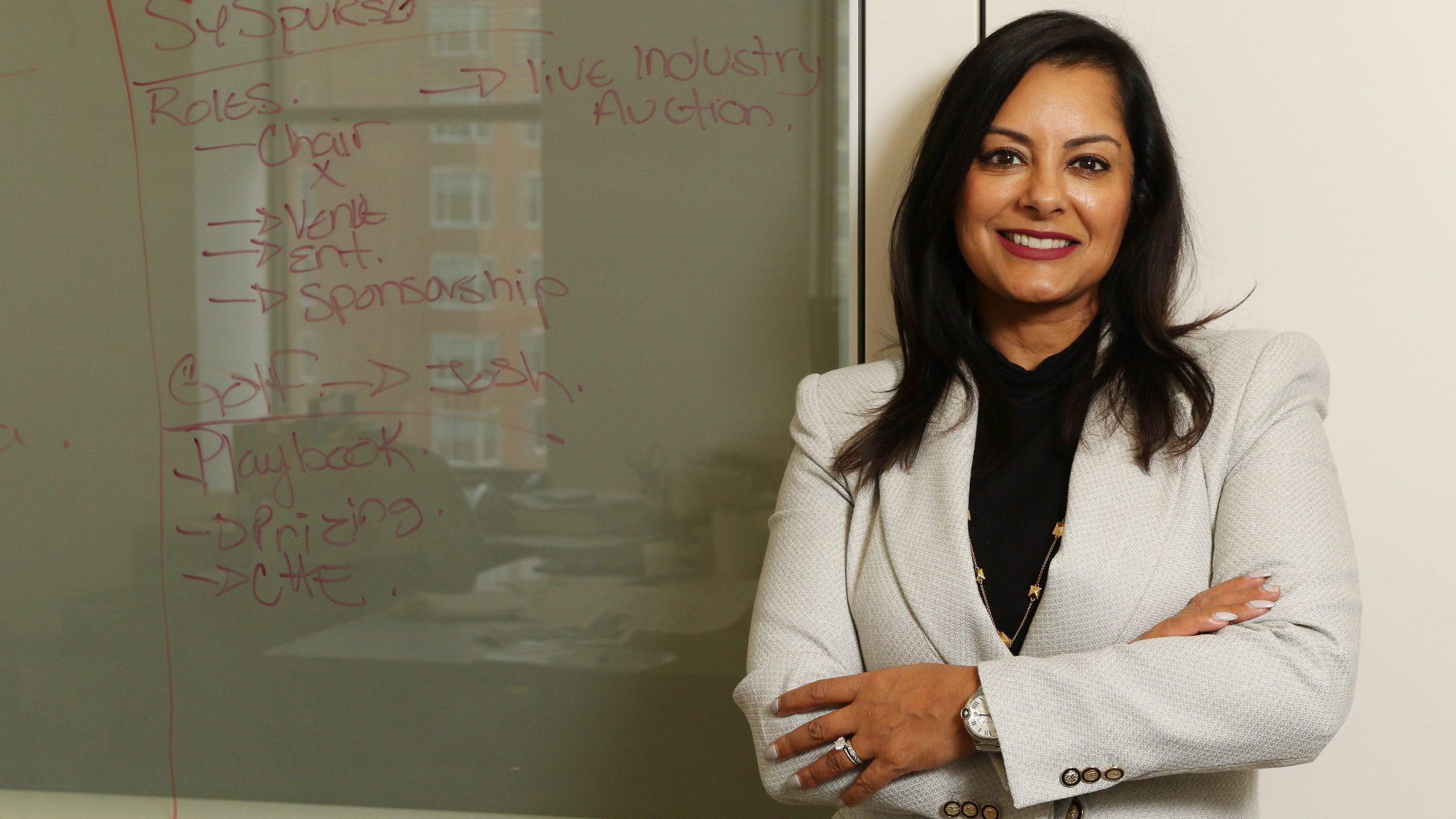
A lawyer by education, with terms in high profile roles as executive director of STARS Air Ambulance and CEO of Big Brothers Big Sisters Calgary, Gurpreet Lail is no stranger to working in organizations dedicated to helping everyday Canadians.
Now two years into her term as the president and CEO of Enserva , formerly known as the Petroleum Services Association of Canada, Lail’s work continues to focus on improving quality of life.
She has no qualms about stating her support for the work the energy industry is doing.
“I will be the first one to say stop apologizing for the work we do, because the work that we do actually, no pun intended, fuels Canadians. We are in the quality of life business, and that’s exactly what our business provides.”
Enserva represents the service, supply and manufacturing sectors of the Canadian energy industry. This includes companies that supply hydraulic fracturing services to equipment suppliers and oilfield construction.
As the energy industry innovates towards more sustainable, low emissions products, she is confident that Enserva’s membership is more than up for the challenge.
“We are all moving to a new energy mix, and we all realize that as an industry we’re going to need new forms of energy to help us meet the demands of the future, especially when we look at global demand,” Lail says.
“Every company we represent has been diversifying their business to make sure we have a cleaner future. A lot of our companies are bringing in technology and artificial intelligence processes that are going to help streamline energy well into the future.

Photo for the Canadian Energy Centre by Dave Chidley
Enserva members are unlocking Canadian energy to make the world a better place, she says.
“They bring their services, they bring their supplies, they bring their manufacturing, globally.”
This includes technology used by drilling companies to replace their diesel fleets with natural gas power and other alternative energy sources, which reduces emissions while drilling wells.
“They just want to do good work, they want to make sure we can provide for Canadians, and they want to provide back into the community with community investments,” Lail says.
“You cannot go into rural Alberta or rural Canada and not see energy companies putting up community rinks or helping local hospitals or making sure your local Tim Hortons is still in business.”
Indigenous reconciliation is an ongoing process, and in Canada, where the oil and gas industry employs thousands of Indigenous workers across the country, she says working with those communities is crucial.
“It’s a good thing to do and it’s the right thing to do, and a lot of other industries aren’t quite thinking that way.”
In her eight years at STARS, Lail helped grow the organization to span three provinces and was a leading driver working with Enserva on the annual STARS & Spurs Gala. The event has raised over $20 million, 29 years and counting.
“STARS has become a fabric of our businesses; it helps save lives including those of our members, and we’re proud of that.”
In the ever-changing dynamic of Canada’s oil and gas industry, more women are finding themselves, like Lail, driving the conversation about Canadian energy.
“If there’s young women out there, or women in general I would always tell them to get involved and don’t shy away from coming into the sector,” she says.
The unaltered reproduction of this content is free of charge with attribution to Canadian Energy Centre Ltd.